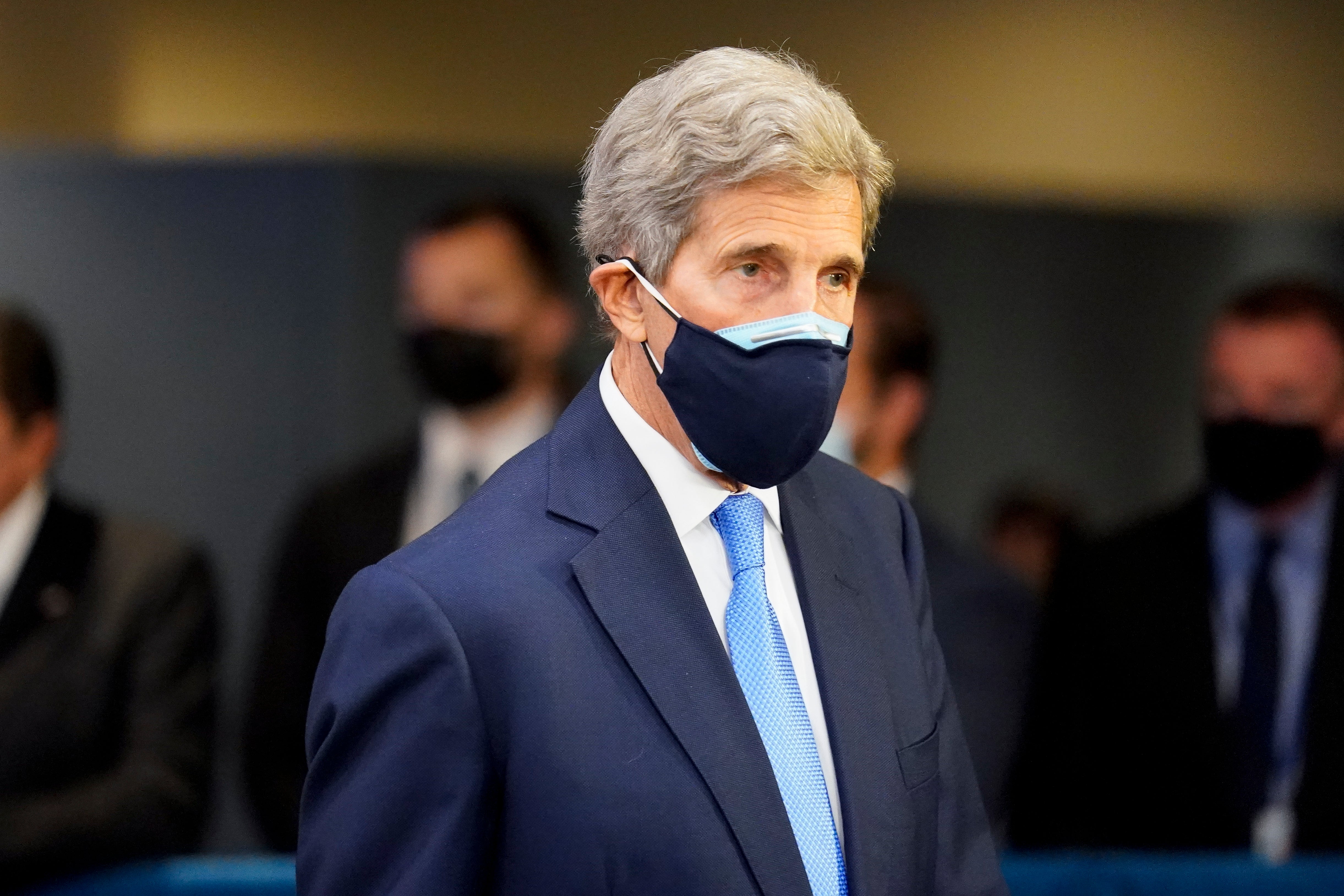US envoy says climate summit can yield 'enormous progress'
U.S. climate envoy John Kerry says he thinks “enormous progress” can be made at upcoming U.N. climate talks in Scotland but more governments must come up with concrete commitments in the next 30 days

Your support helps us to tell the story
From reproductive rights to climate change to Big Tech, The Independent is on the ground when the story is developing. Whether it's investigating the financials of Elon Musk's pro-Trump PAC or producing our latest documentary, 'The A Word', which shines a light on the American women fighting for reproductive rights, we know how important it is to parse out the facts from the messaging.
At such a critical moment in US history, we need reporters on the ground. Your donation allows us to keep sending journalists to speak to both sides of the story.
The Independent is trusted by Americans across the entire political spectrum. And unlike many other quality news outlets, we choose not to lock Americans out of our reporting and analysis with paywalls. We believe quality journalism should be available to everyone, paid for by those who can afford it.
Your support makes all the difference.U.S. climate envoy John Kerry said Saturday he thinks “enormous progress” can be made at upcoming U.N. climate talks in Scotland but more governments must come up with concrete commitments in the next 30 days.
Kerry attended a preparatory meeting in Milan where delegates from around the world sought to identify where progress can be made before the U.N. Climate Change Conference of the Parties starts in Glasgow on Oct. 31.
The 12-day summit aims to secure more ambitious commitments to limit global warming to well below 2 degrees Celsius with a goal of keeping it to 1.5 degrees Celsius compared to pre-industrial levels. The event also is focused on mobilizing financing and protecting vulnerable communities and natural habitats.
“The bottom line is, folks, as we stand here today, we believe we can make enormous progress in Glasgow, moving rapidly towards the new goals that the science is telling us we must achieve,’’ Kerry said. That means achieving a 45% reduction in carbon emissions in the next 10 years.
“This is the decisive decade,’’ Kerry said.
Kerry, a former U.S. senator and secretary of state, said that countries representing 55% of the world's gross domestic product -- Britain, Canada, Japan, the United States and the 27 European Union members - have submitted plans that hit the 1.5 degrees target by reducing greenhouse gas emissions.
But the American diplomat also noted that the 89 new national submissions ahead of the summit would only cut emissions by 12%, and that the sum of all 191 submissions as they are currently written would increase emissions between now and 2030 by 16%.
Kerry declined to single out any country but said that there are ways to achieve lower emissions that aren't that expensive, including organizing power grids and making transmissions more efficient.
China is the world's biggest emitter, and the United States is second. Kerry said U.S. President Joe Biden has had “constructive” talks on the subject with Chinese President Xi Jinping. Kerry also highlighted commitments by India's leader to install 450 gigawatts of renewable power over the next decade.
“Glasgow, my friends, is around the corner. It is the starting line of the race of centuries and the race of this decade," he said. “All countries have to sprint and join together to understand that we are all in this together.’’ Kerry said, adding: ”This is the test of collective multilateralism to the highest level that I have seen in my public career.”
The European commissioner for climate action, Frans Timmermans, separately underlined the importance of meeting the $100 billion annual funding commitment for especially vulnerable countries during 2020-2025 that youth activists who met earlier in Milan pressed for.
Timmermans said the financing needs going forward would draft that amount and that public funding alone would not be able to cover the anticipated price tag, which runs in the trillions.
“We need to change, and we need to change radically and we need to change fast. That’s going to be bloody hard. That’s the bad news,'' Timmermans said.